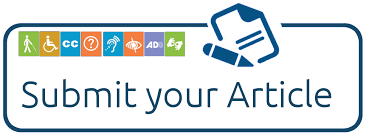The Role of Effective Strategy and Communication for Generation Z in Rural Communities
DOI:
https://doi.org/10.55047/jekombital.v4i1.954Keywords:
Rural Youth Engagement, Intergenerational Communication, Community Development Strategies, Generation Z Participation, Village GovernanceAbstract
One important initial step in developing youth-oriented village development strategies is understanding Generation Z characteristics, including how they communicate, their interests, and aspirations. The purpose of this research is to find the most effective methods and communication approaches to support Generation Z in Karang Rejo Village. This research focuses on Karang Rejo Village in Stabat sub-district, which has 11,621 residents, consisting of 5,827 men and 5,794 women, making it the village with the second largest population in the Stabat. The selection of Karang Rejo as a research location was based on the fact that the village has a very representative demographic, with a balanced population composition between men and women. Using a combination of qualitative methods through in-depth interviews and direct observation, as well as quantitative approaches through surveys, this research aims to identify effective empowerment models. The results obtained are expected to serve as a strategic reference in designing development initiatives that are inclusive, innovative, and sustainable, so that the active involvement of all levels of society is encouraged.
References
Apdillah, D., Harmika, Z., Sahera, M., & Harahap, H. U. (2022). Communication Ethics as Virtual Virtue Control in Media Behavior Society in the Digital Age. JOURNAL OF HUMANITIES, SOCIAL SCIENCES AND BUSINESS, 1(3), 49–60. https://doi.org/10.55047/jhssb.v1i3.148
Arta, A., Faizal, M. A., Asiyah, B. N., & Mashudi. (2023). The Role of Edupreneurship in Gen Z in Shaping Independent and Creative Young Generation. Maro: Jurnal Ekonomi Syariah Dan Bisnis, 6(2). https://doi.org/10.31949/maro.v6i2.5673
Dimock, M. (2019). Defining generations: Where Millennials end and Generation Z begins. Pew Research Center, 17(1), 1–7.
Fikri, R., Mujahidin, M. H., Sutisna, N. A., Najat, K., & Laksana, A. (2024). Dinamika Komunikasi Korporasi dalam Meningkatkan Keterlibatan Karyawan Generasi Z. ETIC: Education and Social Science Journal, 1(2).
Gunawan, H., & Risky, M. C. (2024). Pengaruh Gaya Kepemimpinan, Pelatihan dan Pengembangan Karir terhadap Retensi Karyawan dengan Kepuasan Kerja sebagai Variabel Intervening pada PT. Nusantara Power Engineering Medan. Jurnal GICI: Jurnal Keuangan Dan Bisnis, 16(2). https://doi.org/10.58890/jkb.v16i2.350
Imamam, T. T., & Rizky, M. C. (2024). Peran Human Capital Management terhadap Kinerja Karyawan (Literatur Review MSDM). Juman Tools, 14(1).
Laka, L., Darmansyah, R., Judijanto, L., Lase, J. F., Haluti, F., Kuswanti, F., & Kalip, K. (2024). Pendidikan Karakter Gen Z di Era Digital. PT. Sonpedia Publishing Indonesia.
Lutfiah, A. Q., Rahmadianti, D., & Febrianto, A. S. (2024). Peran Perilaku Komunikasi Interpersonal Generasi Z dalam Pemanfaatan Media Digital. Jurnal Manajerial, 23(1). https://doi.org/10.17509/manajerial.v23i1.65797
Marwantho, M. (2021). Strategi Pengembangan Desa Menuju Desa Mandiri di Kabupaten Tana Toraja. Universitas Hasanuddin.
Nasution, M. I. K., & Rizky, M. C. (2024). Pengaruh Kepemimpinan, Komunikasi dan Beban Kerja terhadap Kinerja ASN dengan Motivasi Sebagai Variabel Intervening pada Dinas Kependudukan dan Pencatatan Sipil Kabupaten Labuhan Batu Selatan. MANEGGIO: Jurnal Ilmiah Magister Manajemen, 7(2). https://doi.org/10.30596/maneggio.v7i2.21424
Nugraheni, S., Agil Muzaki, Y., Rizqi Amelia, D., & Fatwa Anbiya, B. (2024). Strategi Penguatan Penggunaan Bahasa Indonesia di Kalangan Gen Z melalui Media Sosial. PENDIS (Jurnal Pendidikan Ilmu Sosial), 3(1). https://doi.org/10.61721/pendis.v3i1.379
Purnama, K. A., & Farhannaya, N. A. (2024). Komunikasi Gen Z dan Mental Health (Pola Komunikasi Interpersonal Gen Z dalam Membentuk Positive Mental Health). ARUNIKA: Bunga Rampai Ilmu Komunikasi, 02(01), 57–65. https://doi.org/10.36782/arunika.v1i02.326
Saebah, N., & Asikin, M. Z. (2022). Efektivitas Pengembangan Digital Bisnis pada Gen-Z dengan Model Bisnis Canvas. Jurnal Syntax Transformation, 3(11), 1534–1540. https://doi.org/10.46799/jst.v3i11.649
Sari, N., Parawu, H. E., & Taufik, A. (2024). Strategi Meningkatkan Partisipasi Masyarakat dalam Pembangunan Desa yang Berkelanjutan. Kolaborasi : Jurnal Administrasi Publik, 10(2), 107–121. https://doi.org/10.26618/kjap.v10i2.15459
Sawitri, D. R. (2023). Perkembangan Karier Generasi Z: Tantangan dan Strategi dalam Mewujudkan SDM Indonesia yang Unggul. Penerbit Fakultas Psikologi Universitas Diponegoro.
Turner, A. (2015). Generation Z: Technology and social interest. The Journal of Individual Psychology, 71(2), 103–113.
Widiastuti, T., Alisjahbana, S. W., & Suwardi, H. (2013). Teori Komunikasi 2. Penerbit Universitas Bakrie.
Wijoyo, H., Indrawan, I., Handoko, A. L., & Santamoko, R. (2020). Generasi Z & Revolusi Industri 4.0. Pena Persada.
Yoanita, D. (2022). Pola Komunikasi Keluarga di Mata Generasi Z. Scriptura, 12(1), 33–42. https://doi.org/10.9744/scriptura.12.1.33-442
Zis, S. F., Effendi, N., & Roem, E. R. (2021). Perubahan Perilaku Komunikasi Generasi Milenial dan Generasi Z di Era Digital. Satwika : Kajian Ilmu Budaya Dan Perubahan Sosial, 5(1), 69–87. https://doi.org/10.22219/satwika.v5i1.15550










.png)




.png)
.png)











.jpg)
.png)


